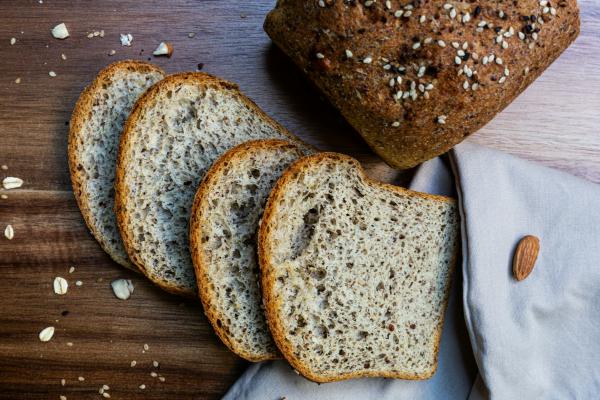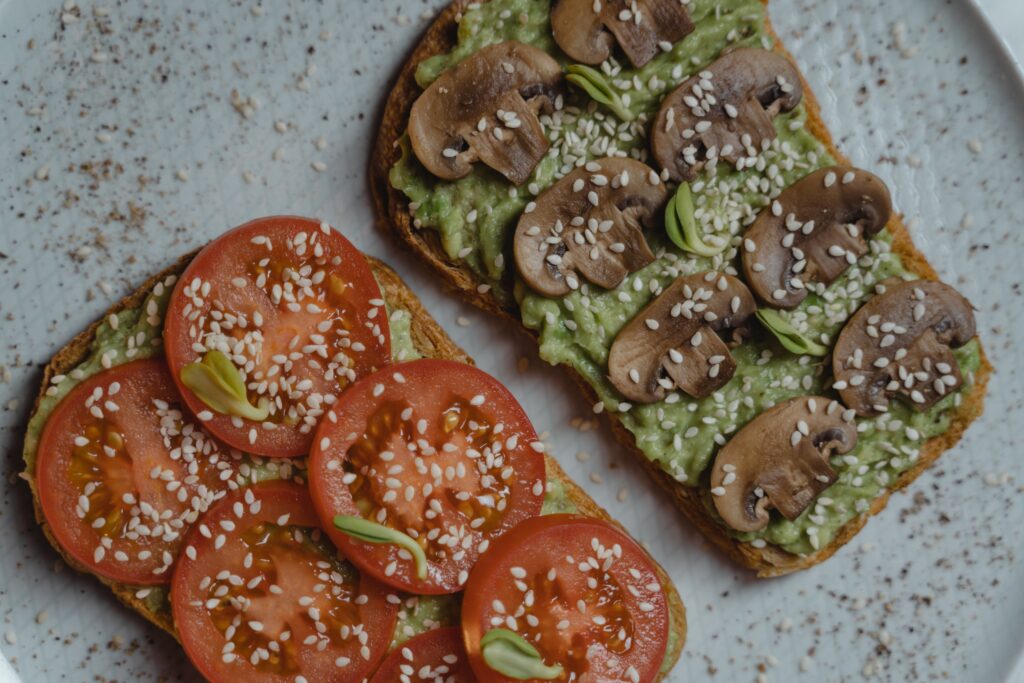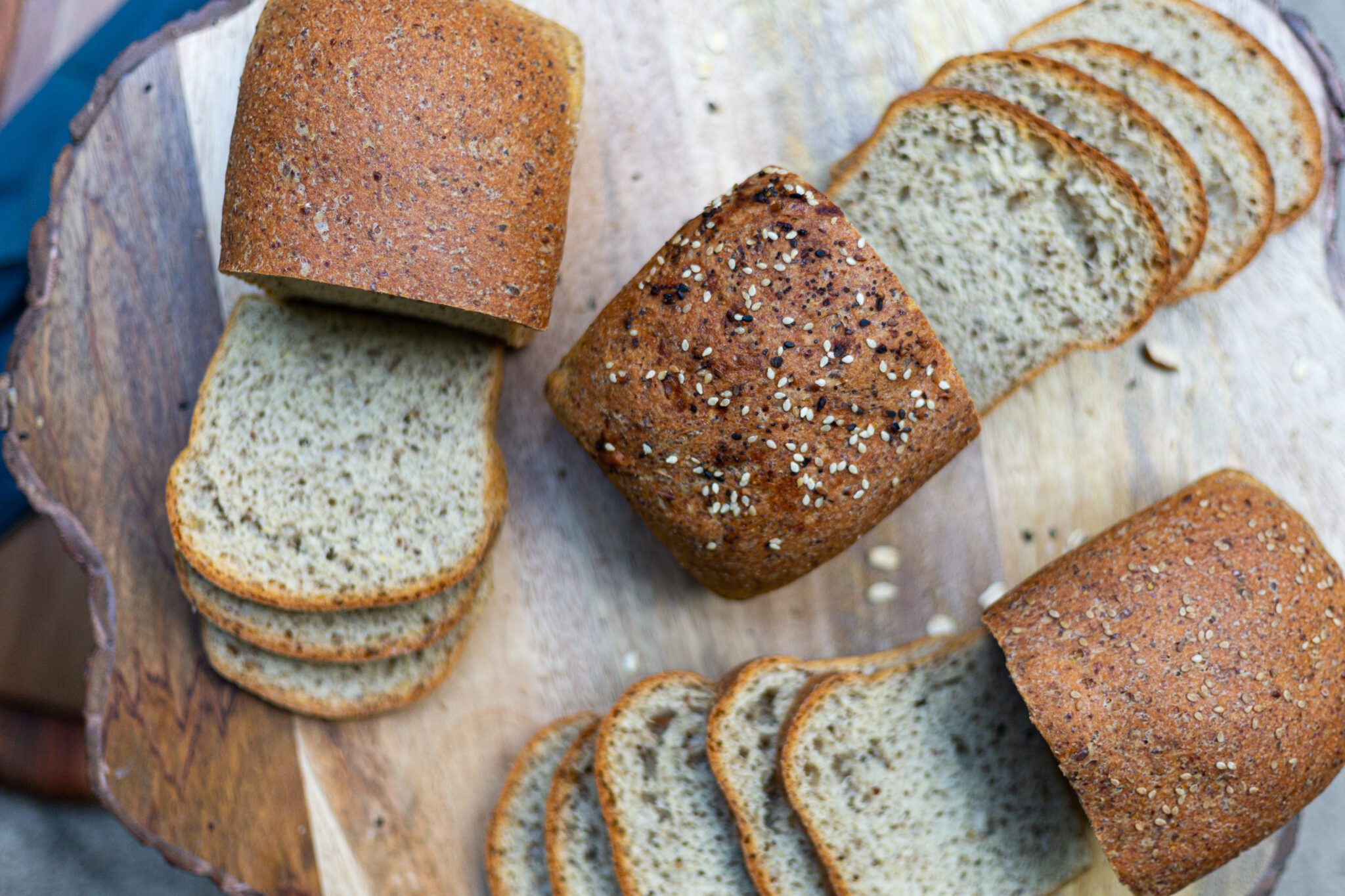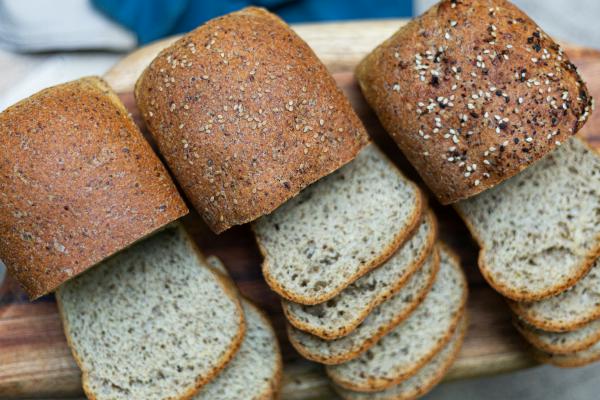


With more people following low carb diets and lifestyle changes, the demand for healthier bread options has increased. Low carb breads provide a solution for those seeking to reduce their carb intake while enjoying one of the most popular food items. This comprehensive guide explores the benefits of low carb breads and everything you need to know to incorporate them into your diet.

Low carb breads use fibrous flours like almond and coconut instead of traditional wheat to dramatically reduce the carb count. Careful recipe formulations maximize nutrients while keeping net carbs, consisting of total carbohydrates minus fiber, extremely low through smart ingredient choices and baking techniques.
A low carb diet limits net carbs (total carbs minus fiber) to 20-50g daily, depending on individual needs. Low carb breads achieve this through ingredient substitutions that deliver fiber, protein and healthy fats over refined carbs.
In recent decades, obesity rates have skyrocketed globally due to poor lifestyle and nutrition choices. This has fueled interest in dietary shifts that promote lasting weight management and overall wellness. Low carb diets have gained popularity for their efficacy, yet eliminating bread feels too harsh. Enter low carb bread – a healthier option combining the best of both worlds.
Almond flour, coconut flour, various seed flours, and veggie purees produce manifold styles. Experimenting expands options for any palate.
Resembling sandwich bread structure best without gluten, almond flour absorbs liquids smoothly for a lighter loaf.
Denser than other varieties, coconut flour breads require extra eggs or oil for proper rise but taste subtly sweet with a moist crumb.
Incorporate crunchy nutritional additions like sunflower, pumpkin or flax seed right into the dough.
Research has shown that reducing carbohydrate intake can:
Research has provided insights into the physiological mechanisms through which limiting carbohydrate intake improves health markers. Fundamental studies explore impacts on insulin resistance, glucose control, appetite regulation, and disease risk factors over short- and long-duration low-carb diets.
When replacing high carb foods with low carb breads, multiple health advantages arise. Chief among them is better weight control, blood sugar balance, gut microbiome equilibrium, and reduced chronic disease risk—all supporting overall wellness objectives.
Compared to calorie-dense carbs, the protein and fat in low carb breads promote fullness to a greater degree and curb cravings. This aids in natural calorie reduction and subsequent weight loss or maintenance.
The slow-burning carbohydrates, fiber, and extra nutrients in low carb bread prevent the blood sugar spikes and subsequent crashes typical of wheat varieties. This stable energy benefits glucose control, focus, and diabetes management.
Fermentable fiber nourishes beneficial probiotic bacteria in the digestive tract, supporting bowel regularity while research associates fiber intake with a reduced risk of colon cancer. Many low carb breads provide three to five grams of fiber per slice.
Here is an expanded nutritional comparison table between whole wheat bread, low-carb almond bread, and two other popular low-carb bread options:
| Nutrient | Whole Wheat Bread (28g) | Almond Bread (28g) | Coconut Bread (28g) | Seed Bread (28g) |
| Calories | 70 | 80 | 90 | 85 |
| Carbohydrates (g) | 14 | 4 | 6 | 5 |
| Fiber (g) | 2 | 2 | 3 | 3 |
| Net Carbs (g) | 12 | 2 | 3 | 2 |
| Protein (g) | 3 | 4 | 5 | 4 |
| Fat (g) | 0.5 | 5 | 7 | 6 |
| Calcium (mg) | 20 | 30 | 40 | 35 |
| Iron (mg) | 1 | 2 | 3 | 2.5 |
| Magnesium (mg) | 20 | 30 | 35 | 32 |
| Potassium (mg) | 70 | 100 | 120 | 110 |
| Vitamin E (mg) | 0.5 | 2 | 3 | 2.5 |
As you can see, all the low-carb bread options provide significantly fewer net carbs per slice compared to whole wheat. They also contain more beneficial fiber, protein, healthy fats, and essential vitamins/minerals.
Specifically:
This comprehensive comparison highlights that various low-carb breads can easily substitute regular bread nutritionally.
Fact: With the right recipes, low carb breads can be soft and flavorful. Denser textures take practice but are far from dry. Slight ingredient tweaks help replicate wheat bread’s notes.
Fact: Authentic versions use no processed sugars or artificial sweeteners. Natural sweet sources like coconut sugar raise carb counts too high. Careful recipe selection ensures no hidden dangers.
Fact: When balanced with whole foods, adequate protein/fat, and various carbs, overwhelming research shows low carb diets support health as much as other patterns. Moderation remains key regardless.
Fact: Basic recipes require only real-food ingredients like almond flour, coconut flour, eggs, oil. Packaged types may add preservatives but homemade always offers the freshest option with full control over quality.
Fact: While fiber reduces net carbs impact, it doesn’t cancel them. Low carb recipes strategically limit total carb sources, keeping fiber ratios high and final counts very low.
Fact: Fats in low carb bread come primarily from heart-healthy plant sources like avocado, coconut and olive oil crucial for hormonal and metabolic health support when carb intake reduces.
Clearing up common misconceptions empowers choosing low carb breads deliciously and without undue worry. An informed approach suits each best.
In conclusion, this guide has highlighted the many delicious and nutritious low carb bread options available today that can seamlessly fit into any healthy eating plan. Whether following a strict low carb diet, looking to somewhat moderate-carb intake, or simply enjoying these varieties occasionally for flexibility, low carb breads demonstrate how satisfying cravings does not require deprivation or compromise when selecting the right recipes customized for individual needs and goals. With the variety of tasty choices and some basic knowledge on customizing to one’s requirements, this guide aims to empower readers to feel informed exploring new go-to low carb breads that align full enjoyment of favorites with long-term well-being.




















Sign up below to receive exclusive deals and be first to know when delicious new products are coming out.